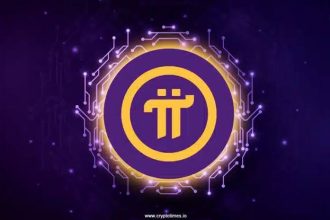The cryptocurrency landscape has always been a subject of intense scrutiny by regulatory bodies worldwide. Vietnam, in particular, has been closely monitoring the developments in the cryptocurrency space. Recently, the Vietnamese Department of Cybersecurity and High-Tech Crime Prevention launched an investigation into Pi Network, expressing concerns about its complexity, management, transparency, and potential for misuse. In this article, we will explore whether Vietnamese authorities are likely to recognize Pi Network after its Mainnet launch.
Pi Network, often hailed as the “people’s cryptocurrency,” gained significant popularity through its mobile app that allowed users to mine Pi tokens using their smartphones. The project garnered a massive user base globally, but it also caught the attention of regulators in various countries.
The Concerns Raised by Vietnamese Authorities
The Vietnamese Department of Cybersecurity and High-Tech Crime Prevention, headed by Le Xuan Minh, has voiced several concerns regarding Pi Network. These concerns can be broken down into the following key points:
1. Complexity and Management: Authorities in Vietnam have found Pi Network’s model to be exceedingly complex and unmanaged. The intricate nature of the project could potentially make it challenging for regulators to oversee and ensure compliance.
2. Transparency: Transparency is a crucial aspect of any blockchain project. Vietnamese authorities have raised doubts about Pi Network’s transparency, which is essential to build trust in the project and safeguard investors’ interests.
3. Multi-Level Marketing (MLM) Resemblance: The authorities have expressed concerns that cryptocurrency promoters associated with Pi Network have used business models that resemble multi-level marketing (MLM) schemes. MLM structures can be controversial and may raise suspicions of fraudulent activities.
4. Potential for Misuse: Le Xuan Minh has also warned that the Pi Network, if not adequately regulated and monitored, could be utilized for nefarious purposes, such as fraud or data collection. This potential misuse poses a significant risk to users and the integrity of the cryptocurrency.
The Future of Pi Network in Vietnam
As the investigation by Vietnamese authorities unfolds, the future of Pi Network in Vietnam remains uncertain. Whether or not Pi Network will be officially recognized in the country post its Mainnet launch will depend on several factors:
1. Compliance: Pi Network will need to demonstrate its commitment to complying with Vietnamese regulations. This may involve adapting its model to align with the country’s legal framework.
2. Transparency: Improving transparency is critical. Pi Network should work on enhancing its transparency to address concerns raised by authorities.
3. Education and Awareness: Pi Network can also play a role in educating users about the risks and benefits of cryptocurrency and blockchain technology, which could help alleviate concerns regarding potential misuse.
4. Regulatory Cooperation: Collaborating with Vietnamese regulatory bodies can pave the way for a more favorable reception. Open dialogue and cooperation are often key to gaining recognition in a regulated market.
The fate of Pi Network in Vietnam hinges on its ability to address the concerns raised by Vietnamese authorities and work collaboratively towards a mutually beneficial solution. The cryptocurrency world is evolving, and regulatory challenges are part of its journey. It remains to be seen whether Pi Network can navigate these challenges successfully and secure its place in the Vietnamese market.
Source: Binance Feed












I am sending you 1π! Pi is a new digital currency developed by Stanford PhDs, with over 47 million members worldwide. To claim your Pi, follow this link https://minepi.com/daiv101 and use my username (daiv101) as your invitation code.